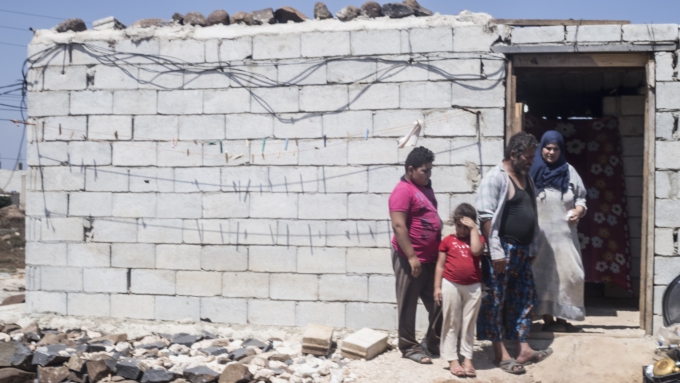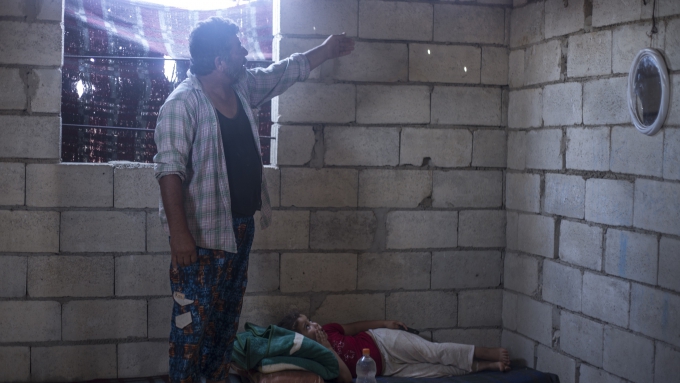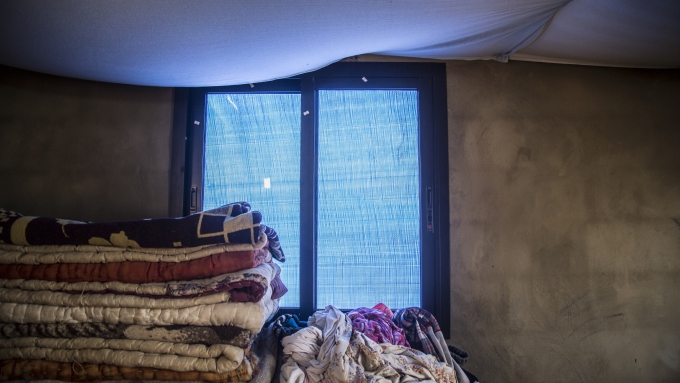Where the wind stops to blow

The vast tract of arable land remains largely unoccupied.
Except for the wild birds that attract over-enthusiastic hunters over the course of the season, there is nothing to suggest that this remote spot in North Lebanon is full of life.
On the western edge of this land, inside a ramshackle cottage, a family of five are taking shelter. Jaber*, Hoda* and their three children moved here because the only alternative was the street.
But that move has given the family little reason to cheer.

“Look around [the house] and you will know its inhabitants are waiting for death to walk in any moment,” says Jaber with despair verging on sarcasm. “I always thought death would be a relief.”
The conditions in which the family have lived for six months explain Jaber’s strong words. The shelter stands vulnerable in the face of the winds. Helpless.
A thin metal sheet -the ceiling- shakes violently to give the grey sky a peek inside the shack. Jaber fears it will collapse while his children slept.
Stray dogs and foxes have nothing to stop a late-night scamper around the children’s room. There are no doors. No windows.

Lubna*, 10, describes her nights sleeping, or struggling to, in the kitchen, which also functions as a bedroom for her siblings, “I often hear dogs barking behind the wall. I can even distinguish between a dog and a fox without looking, just from the sound.’’
Such conditions are not the exception but the rule for thousands of refugee families spending a sixth winter in Lebanon. Thousands of children have no access to their basic right to stay in an adequate shelter.
With the plummeting temperatures hopes faded for a warm winter. Hoda braced herself for what promised to be “a season like never before.’’
Three weeks into November, the unseen transformation came about.

The shaky ceiling was now turned into a steel roof; new doors, windows, and a kitchen sink were installed; the holes in the walls were plugged. With support from the UK Department for International Development (DFID), Save the Children, through Shelter services, helped the family to carry out rehabilitation works and turn the cottage into a place inhabitable for the longer period.
For Hoda, those were three ‘dream-like’ weeks. Life-changing. They mean that her children will finally have peaceful sleep at night, spend a warmer winter and have a roof over their head.
“We never thought we would stay in a shelter like normal people do.
“To be able to close the door or turn the heating on just to feel a little bit of warmth is a simple pleasure we never thought we would enjoy.”
*Names changed for protection purposes.
 Lebanon
Lebanon